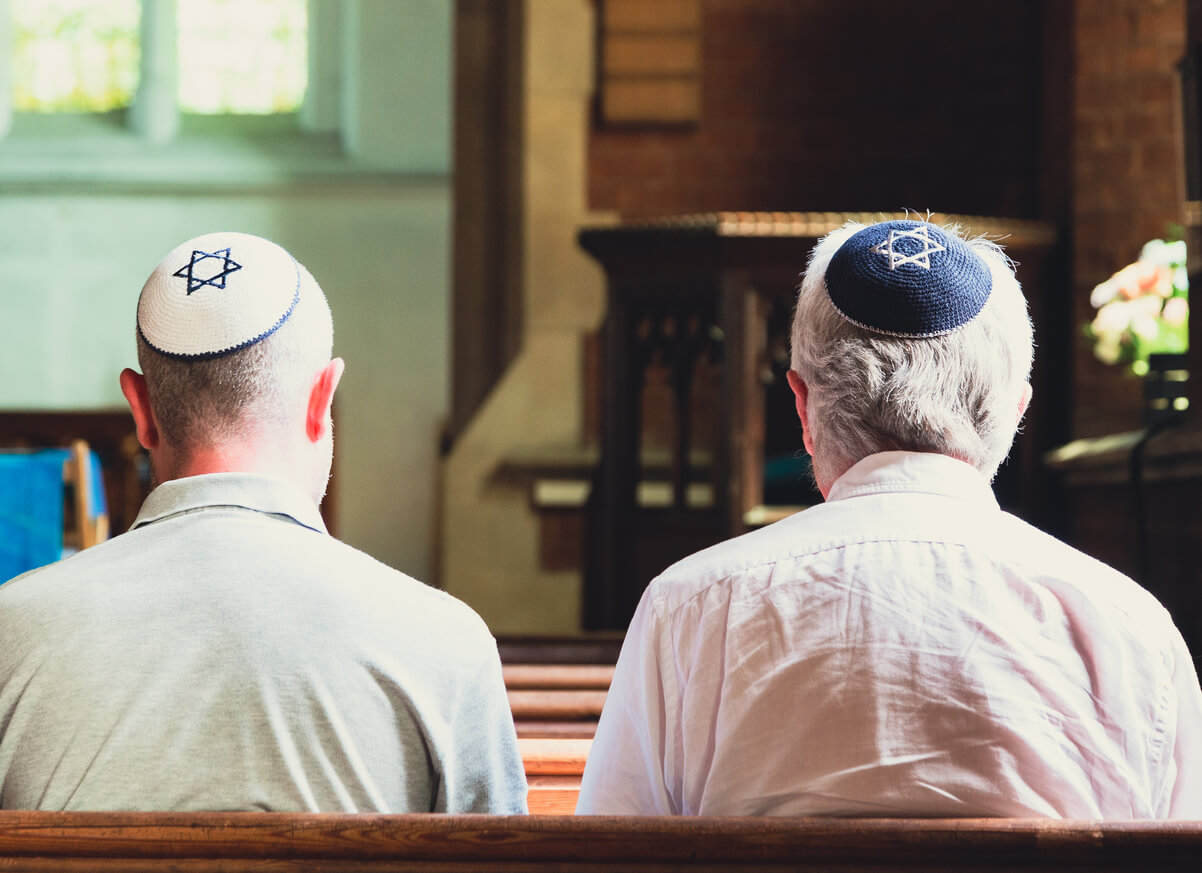Older adults show a willingness to connect with Jewish community — but many don’t
A new survey of Jews ages 55-74 yielded results that the Jewish Federations of North America says should lead to new initiatives

Many Jews in their senior years say they are open to more engagement with the community. Photo by coldsnowstorm/iStock
About half of older Jewish Americans are not engaged with the Jewish community, but within that group, the vast majority — 70% — are at least open to increasing their engagement.
That’s one of the findings of a new survey of older Jewish adults from the Jewish Federations of North America.
The Jewish community generally gets high marks for its programming for young people — from its popular preschools to Hillel for college students. But leaders of the federations, which represent more than 350 Jewish communities across the continent that organize and fund social welfare, educational and other programming, wondered how they were faring with older Jews.
They found that they could be doing better for a group that is growing in numbers, living longer and is healthier and more tech-savvy than previous generations of older Jewish adults.
“This is a very different audience that we’re working with now,” said Sarah Eisenman, who heads the Federations’ office on community and Jewish life. “A lot of our engagement structures and continuum haven’t necessarily been updated to reflect who this audience is today and where it’s going.”
The poll, which was conducted by polling firm Benenson Strategy Group and involved 536 Jews between the ages of 55 and 74, showed a generation largely content, with many engaged with exercise, travel and social activities. Most said they don’t feel their best years are behind them.
While facilities like Jewish old-age homes may have met the needs of previous generations, Eisenman said that the poll revealed a need to innovate to serve community members who are “living longer and are able to be involved, active contributors to Jewish life.” At the same time, she said, it must still support “vulnerable populations on the other end that need services” such as assisted living.
As with other generations of North American Jews, traditional centers of Jewish life have begun to fade in importance. According to the poll, 53% of respondents said they were members of a congregation, and of those, 31% said they strongly agree that they regularly attend. (That’s somewhat higher than the 20% of American Jews who reported regularly attending synagogue in a 2020 Pew Research Center study.)
The federation survey suggests, Eisenman said, that even those who aren’t observant still want to take part in Jewish life, and that this might require a re-thinking of what role synagogues play in the community.
“We need additional new and innovative models to engage in this audience,” both within and outside synagogues and other legacy Jewish institutions, said Eisenman.
She said federations can take inspiration from innovative programs like those offered by New York City’s Lab/Shul, which calls itself an “artist-driven, everybody-friendly, God-optional pop up,” and aims to lower barriers to entry. Its GENerate program was developed to meet spiritual needs through study sessions and rabbinical guidance, but also offers weekend retreats and volunteer opportunities.
Eisenman imagines that compelling programming for older Jewish adults in the future could include “immersive experiences,” such as a federation project, already underway, in which Jewish seniors take a trip to the Modern Elder Academy, which aims to “turn your midlife crisis into a calling.” The federations are also working on new models of spiritual programming, as well as employment and volunteer initiatives, to help seniors put their wisdom to work.
While driving more engagement with the community might seem like a worthy goal in and of itself, the data showed that “those who are more engaged in Jewish life generally feel more positive and are more optimistic about their life as a whole,” said Eisenman. “Jewish engagement is linked to their wellness and health going forward because we know that that prevents loneliness, prevents isolation and that gives a feeling of purpose and meaning in one’s life.”
“The more engaged you are, the more optimistic and overall positive you feel about your state in the world.”















